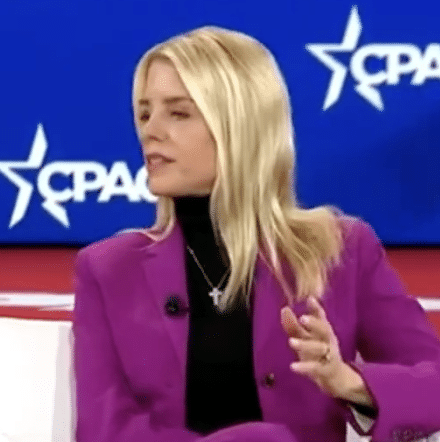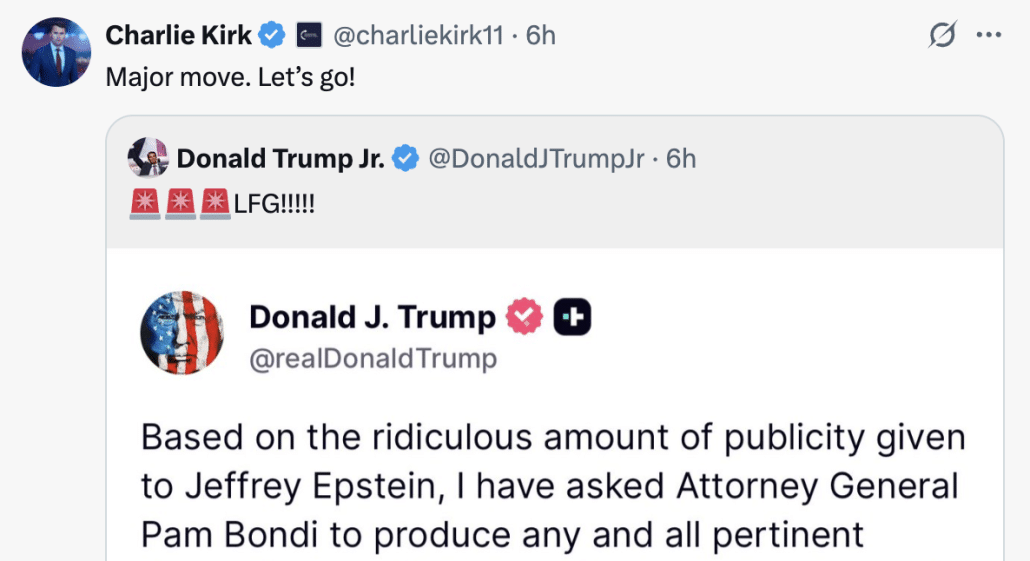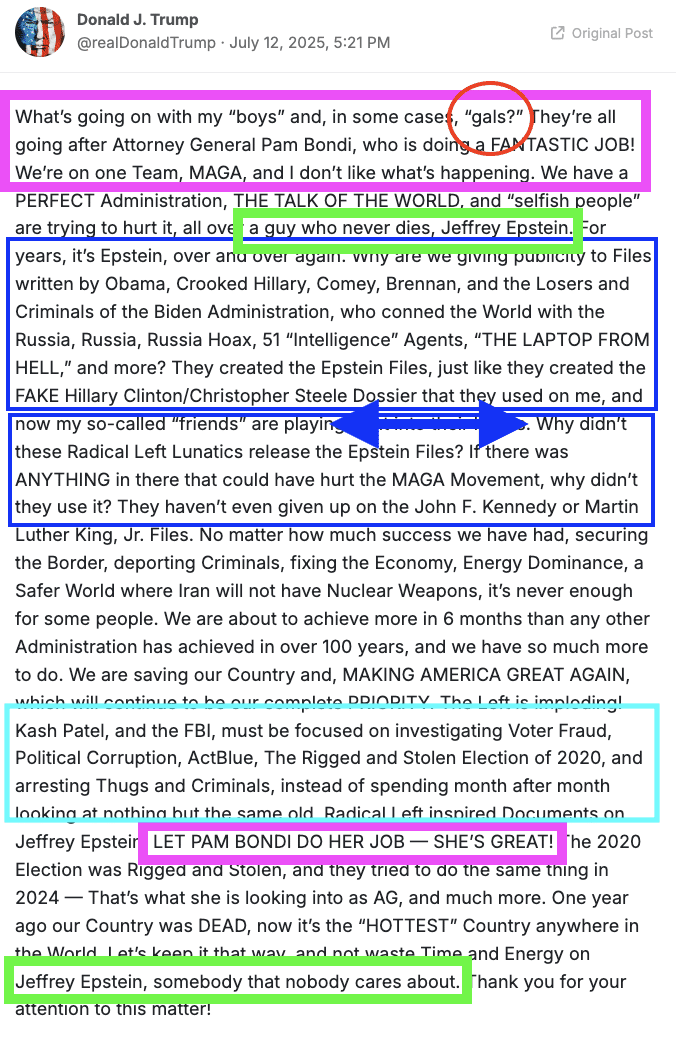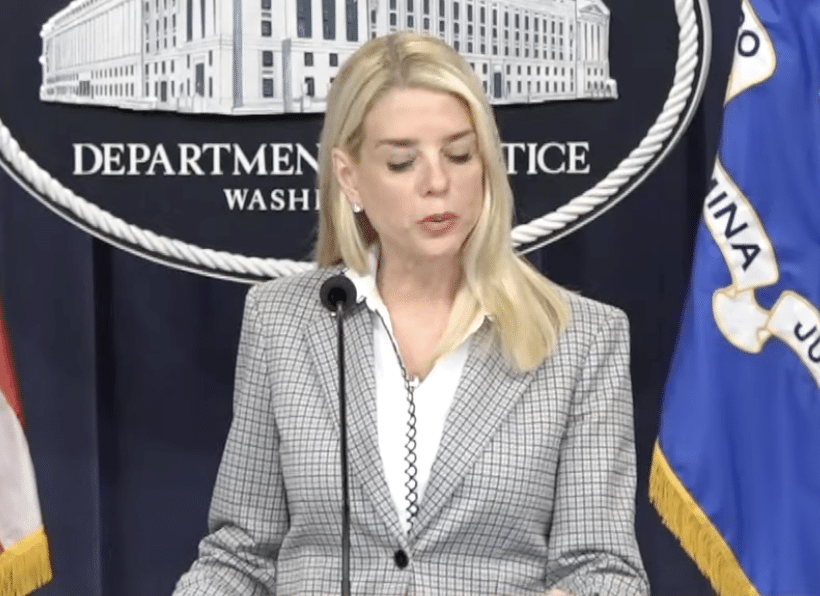Trump Might Pardon the Sex Trafficker Who “Stole” His Spa Girls and Other Details of the Cover-Up
Much of the traditional press (though not Chris Hayes) has missed the significance of Trump’s confession yesterday that Virginia Giuffre — recruited from Trump’s spa when she was 16 or 17 — was one of the girls that he says Jeffrey Epstein “stole.”
Reporter 1: I’m just curious. Were some of the workers that were taken from you — were some of them young women?
Trump: Were some of them?
Reporter 1: Were some of them young women?
Trump: Well, I don’t wanna say, but everyone knows the people that were taken. It was, the concept of taking people that work for me is bad. But that story’s been pretty well out there. And the answer is, yes, they were.
[inaudible]
Trump: In the spa. People that work in the spa. I have a great spa, one of the best spas in the world at Mar-a-Lago. And people were taken out of the spa. Hired. By him. In other words, gone. And um, other people would come and complain. This guy is taking people from the spa. I didn’t know that. And then when I heard about it I told him, I said, listen, we don’t want you taking our people, whether they were spa or not spa. I don’t want him taking people. And he was fine and then not too long after that he did it again and I said Out of here.
Reporter 2: Mr. President, did one of those stolen persons, did that include Virginia Giuffre?
Trump: Uh, I don’t know. I think she worked at the spa. I think so. I think that was one of the people, yeah. He stole her. And by the way, she had no complaints about us, as you know. None whatsoever.
Many, for example are forgetting what Trump said the day before: Epstein “stole” one of Trump’s girls, Trump told him to stop, and Epstein did it again.
What caused the breach with him? Very easy to explain. But I don’t want to waste your time by explaining it. But for years I wouldn’t talk to Jeffrey Epstein. I wouldn’t talk. Because he did something that was inappropriate. He hired help. And I said, don’t ever do that again. He stole people that worked for me. I said, don’t ever do that again. He did it again. And I threw him out of the place. Persona non grata. I threw him out. And that was it.
To tell Epstein to stop doing something, Trump would have had to have known he was doing something.
And the “it” is made much more clear by what “the Mar-a-Lago” told Page Six in 2007, even before Epstein had signed the sweetheart non-prosecution agreement.
Meanwhile, the Mar-a-Lago Club in Palm Beach last night confirmed a Web site report that Epstein has been banned there. “He would use the spa to try to procure girls. But one of them, a masseuse about 18 years old, he tried to get her to do things,” a source told us. “Her father found out about it and went absolutely ape-[bleep]. Epstein’s not allowed back.” Epstein denies he is banned from Mar-a-Lago and says, in fact, he was recently invited to an event there.
Before the full extent of Epstein’s abuse was public, someone at Mar-a-Lago wanted to make it clear that when Epstein did “procure girls … he tried to get her to do things.”
This member’s daughter who was “about 18,” was at least the second girl Trump learned about.
The first (or who knows? maybe she wasn’t the first!) was Giuffre.
The second (at least) was the member’s daughter.
Having now confirmed that Giuffre was among the “girls” Epstein would try to “procure” from Trump’s spa, it makes both Trump’s public acknowledgement to New York Magazine (two years after Ghislaine Maxwell “stole” Giuffre) that Epstein liked his so-called women “on the younger side” and the smutty letter sent a few months later reflected knowledge that Epstein was fucking girls.
“Voice Over: There must be more to life than having everything,” the note began.
Donald: Yes, there is, but I won’t tell you what it is.
Jeffrey: Nor will I, since I also know what it is.
Donald: We have certain things in common, Jeffrey.
Jeffrey: Yes, we do, come to think of it.
Donald: Enigmas never age, have you noticed that?
Jeffrey: As a matter of fact, it was clear to me the last time I saw you.
Donald: A pal is a wonderful thing. Happy Birthday — and may every day be another wonderful secret.
Not just any girls, but his girls. Trump’s girls, from his spa.
And Trump is so furious that Ghislaine Maxwell stole girls from his spa that he’s saying the same thing about a pardon for her that he said about pardons for Paul Manafort and Roger Stone before he rewarded for their lies about him, that he won’t rule it out.
By all appearances, Trump will pardon the woman who stole his girls. That’s how furious he is that she groomed at least two of his girls and tried — successfully in Giuffre’s case — to turn her into a sex slave.
Meanwhile, now that Trump has placated much of the press, the cover-up continues apace. In a letter David Markus sent to James Comer (but not Oversight Ranking Member Robert Garcia — Markus was leaving nothing to chance) he said that Ghislaine would only testify to the House Oversight Committee if she:
- Got formal immunity
- Got the questions in advance
- After she tests her luck with SCOTUS (in which case she won’t need to spill secrets to get out of prison)
- If she gets clemency for the things she’ll say
In other words, she’ll only testify if that’s the only way she can leverage what she knows.
Comer immediately declined, meaning Trump faces no risk that Ghislaine’s silence will disrupt the cover-up.
Meanwhile, Pam Bondi, Todd Blanche, and Jay Clayton (but not even the AUSA who filed an appearance) have confessed that they are engaged in a headfake. Their response to Richard Berman and Paul Engelmeyer falsely claims that the interest in these transcripts arose from the memo Pam Bondi released and not the inflammatory comments and promises Bondi, Kash Patel, and Dan Bongino made.
Attention given to the Epstein and Maxwell cases has recently intensified in the wake of the July 6, 2025 Memorandum announcing the conclusions of the Government’s review into the investigation
They minimize the concerns about victim testimony because just two people testified.
Here, there was one witness—an FBI agent—during the Epstein grand jury proceedings. There were two witnesses—the same FBI agent from the Epstein grand jury proceedings and a detective with the NYPD who was a Task Force Officer with the FBI’s Child Exploitation and Human Trafficking Task Force—during the Maxwell grand jury proceedings.
Both witnesses are still alive; the FBI agent continues to be an agent with the FBI, and the Detective continues to be a Detective with the NYPD as well as a Task Force Officer.
Consistent with applicable rules concerning the admissibility of hearsay testimony, the grand jury witnesses described statements of others, including statements of and concerning victims, many of whom are still alive.
They admit they’ll redact the names of the third parties who enabled Epstein (which they wouldn’t necessarily have to do if they released the files in their custody).
[T]he grand jury transcripts contain victim-related and other personal identifying information related to third parties who neither have been charged or alleged to be involved in the crimes with which Epstein and Maxwell were charged, to which the Government is sensitive, and which is why the Government proposes redacting the transcripts before releasing them.
But they are providing notice to those people.
In addition, the Government is in the process of providing notice to any other individuals identified in the transcripts.
They appear to suggest that they’re not providing all the grand jury transcripts to the judges — just the underlying material.
The Court directed the Government to submit: (1) indices of Epstein and Maxwell grand jury materials, including a brief summary, the number of pages, and dates; (2) a complete set of the Epstein and Maxwell grand jury transcripts; (3) a complete proposed redacted set of the Epstein and Maxwell grand jury transcripts; and (4) a description of any other Epstein and Maxwell grand jury materials, including, but not limited to, exhibits. (Epstein Dkt. 63 at 3; Maxwell Dkt. 789 at 3). As to the final category, the Government provides a description of all of the underlying materials presented to the grand jury as well as copies of, and proposed redactions to, certain materials presented to the grand jury. [my emphasis]
They definitely don’t answer a question both judges asked: whether DOJ had asked the victims before filing this response.
The Court also directed the Government to state whether, “before filing the instant motion, counsel for the Government reviewed the Maxwell grand jury transcripts and whether the Government provided notice to the victims of the motion to unseal,”
[snip]
In addition, the Government has now provided notice to all but one of the victims who are referenced in the grand jury transcripts at issue in this motion. The Government has attempted to contact the remaining victim, but such efforts have been unsuccessful. In addition, the Government is in the process of providing notice to any other individuals identified in the transcripts.
Having not done that (and not yet spoken to one of the victims), they ask for a chance to respond to the victims’ comments about this ploy — which they should have asked about before they started it — after they file sealed responses.
[T]he Government also respectfully requests leave to file a supplemental submission once the Government and the Court have received any filings from the victims or others referenced in the transcripts.
The only thing this exercise is “transparency” has done so far is to share grand jury information with people implicated, but not charged, in Epstein’s actions.
Note, one person specifically implicated in Epstein’s crimes is Prince Andrew. To the extent he was investigated and possibly even charged under seal — which is the most obvious explanation for why he wouldn’t travel — the DOJ letter would create the appearance of a clean bill of health. But it could be buried in a different grand jury and we’d never even know.
Update: This is a very good CNN piece, including a long focus on how hard this is on the victims.















